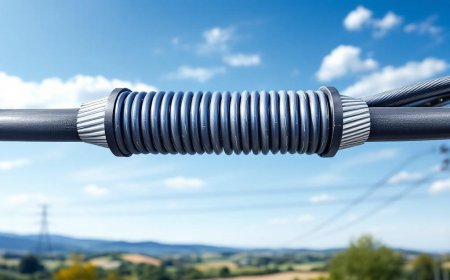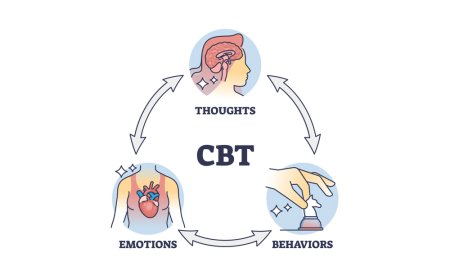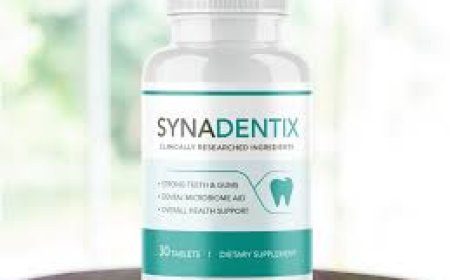How Vermact 6 Works to Eliminate Parasites Effectively?

Introduction
Parasitic infections are common worldwide, especially in tropical and subtropical regions. These infections can affect the skin, intestines, and even the bloodstream, leading to a wide range of health problems. Vermact 6, which contains Ivermectin 6 mg as its active ingredient, is a trusted and widely used medication for the treatment of many parasitic infestations. It is particularly effective against infections caused by worms and certain external parasites like mites and lice.
In this detailed guide, we will explore how Vermact 6 works, its uses, mechanism of action, dosage, side effects, and precautions—providing a clear understanding of how this medicine helps eliminate parasites effectively and safely.
1. What is Vermact 6?
Vermact 6 is an antiparasitic medication belonging to the class of macrocyclic lactones, specifically known as avermectins. Its primary active compound, Ivermectin, was originally derived from Streptomyces avermitilis, a type of soil-dwelling bacterium. Since its discovery, Ivermectin has become one of the most important drugs in global health for controlling parasitic infections in humans and animals.
Each Vermact 6 tablet contains 6 mg of Ivermectin, and it is typically prescribed to treat parasitic infections like:
-
Strongyloidiasis (caused by Strongyloides stercoralis)
-
Onchocerciasis (river blindness caused by Onchocerca volvulus)
-
Scabies (caused by mites)
-
Head lice infestations
-
Intestinal worms
-
Cutaneous larva migrans (skin infection from hookworm larvae)
2. How Vermact 6 Works: The Mechanism of Action
Vermact 6 eliminates parasites through a unique biological mechanism that targets their nervous system while remaining safe for humans.
Step-by-Step Mechanism:
-
Binding to Nerve and Muscle Receptors:
Ivermectin binds specifically to glutamate-gated chloride ion channels found in the nerve and muscle cells of parasites. -
Increased Chloride Ion Permeability:
This binding leads to an increased flow of chloride ions into the cells, causing hyperpolarization of the parasite’s nerve and muscle membranes. -
Paralysis and Death of Parasites:
The hyperpolarization effectively paralyzes the parasite, preventing it from feeding, reproducing, or maintaining its grip within the host’s body. Eventually, the immobilized parasite dies naturally and is expelled from the body. -
Selective Toxicity (Safe for Humans):
The unique advantage of Ivermectin lies in its selective action. Human nerve cells do not have the same glutamate-gated chloride channels, and Ivermectin does not cross the blood-brain barrier in significant amounts, making it safe for human use at therapeutic doses.
3. Conditions Treated by Vermact 6
a. Strongyloidiasis
Caused by Strongyloides stercoralis, this intestinal infection can persist for years if untreated. Vermact 6 eliminates adult worms and larvae, helping to restore intestinal health and prevent complications.
b. Onchocerciasis (River Blindness)
Onchocerciasis is transmitted by blackfly bites and causes itching, nodules under the skin, and eye damage. Vermact 6 kills the microfilariae (larval form), reducing symptoms and halting disease transmission, although it does not kill adult worms directly.
c. Scabies
Scabies is caused by the Sarcoptes scabiei mite, which burrows under the skin, causing intense itching and rashes. Vermact 6, taken orally, kills the mites and their larvae, offering relief when topical treatments fail.
d. Pediculosis (Head Lice)
Ivermectin effectively paralyzes and kills head lice by disrupting their nervous system, making Vermact 6 a reliable alternative for resistant infestations.
e. Filariasis and Other Worm Infections
Vermact 6 can be used in the treatment of filarial infections, especially when combined with drugs like Diethylcarbamazine (DEC) or Albendazole as part of mass deworming programs.
4. Dosage and Administration
The correct dosage of Vermact 6 depends on factors such as body weight, type of infection, and doctor’s recommendation.
Typical Dosage Guidelines:
-
For Strongyloidiasis: A single dose of 200 µg/kg body weight, often repeated after 2 weeks if necessary.
-
For Onchocerciasis: 150 µg/kg body weight taken as a single dose every 6–12 months.
-
For Scabies or Lice: Usually, a single dose followed by another after 7–14 days to kill newly hatched parasites.
Administration Tips:
-
Take Vermact 6 on an empty stomach with a full glass of water.
-
Do not chew or crush the tablet.
-
Avoid taking it with alcohol or high-fat meals.
-
Follow your doctor’s instructions strictly—self-medication is not recommended.
5. How Quickly Does Vermact 6 Work?
Vermact 6 starts working within a few hours of ingestion. The active ingredient Ivermectin quickly binds to the parasites’ nervous system and paralyzes them.
-
Visible improvement in symptoms like itching, rashes, or intestinal discomfort is often noticed within 24 to 48 hours.
-
Complete eradication of the infection may take a few days to weeks, depending on the parasite type and infection severity.
6. Side Effects of Vermact 6
While Vermact 6 is generally well-tolerated, some people may experience mild to moderate side effects.
Common Side Effects:
-
Headache
-
Dizziness
-
Nausea or vomiting
-
Fatigue
-
Muscle pain or joint discomfort
Less Common but Serious Side Effects:
-
Rash or itching (allergic reactions)
-
Swelling of face or limbs
-
Rapid heartbeat
-
Visual disturbances
-
Shortness of breath
Most side effects occur as a reaction to the dying parasites, not the medicine itself. Doctors may recommend antihistamines or anti-inflammatory medications to ease these reactions.
7. Precautions and Warnings
Before using Vermact 6, consider the following precautions:
-
Pregnancy and Breastfeeding: Consult your doctor before use, as safety data are limited.
-
Children: Generally safe for children above 15 kg body weight, but always use under medical supervision.
-
Liver or Kidney Disorders: Dose adjustments may be needed for patients with organ impairment.
-
Neurological Conditions: Avoid use in individuals with meningitis or other central nervous system disorders, as the drug may cross the blood-brain barrier in such cases.
-
Drug Interactions: Inform your doctor if you are taking sedatives, warfarin, or other antiparasitic medications.
8. Benefits of Vermact 6
-
Broad-Spectrum Action: Effective against internal and external parasites.
-
Single-Dose Convenience: Often requires just one or two doses for complete cure.
-
Safe and Well-Tolerated: Minimal side effects when used correctly.
-
Prevents Transmission: Reduces the spread of parasitic infections in communities.
-
Global Impact: Recognized by the World Health Organization (WHO) as a key drug for controlling neglected tropical diseases like onchocerciasis and lymphatic filariasis.
9. Price and Availability
Vermact 6 is easily available in pharmacies and online medical stores.
-
Form: Tablet (6 mg Ivermectin)
-
Price (India): ₹20–₹50 per strip of 10 tablets (may vary by brand and location)
-
Manufacturers: Common brands include Mectizan, Iverjohn, and Vermact.
Its affordability and effectiveness make it a preferred choice for treating parasitic infections in both developed and developing countries.
10. Conclusion
Vermact 6 (Ivermectin 6 mg) is one of the most effective and reliable medications for treating parasitic infections. By paralyzing and killing the parasites through selective binding to their nerve and muscle cells, it provides rapid relief and prevents further spread of the infection.
Whether used to treat intestinal worms, scabies, or river blindness, Vermact 6 offers a safe, fast-acting, and cost-effective solution. When taken under medical supervision and in the prescribed dosage, it helps restore health and improves quality of life by effectively eliminating harmful parasites from the body.





























